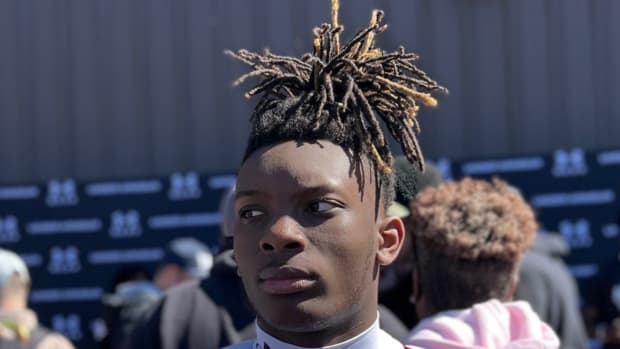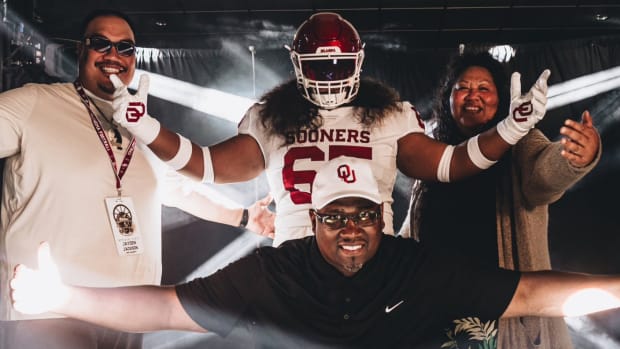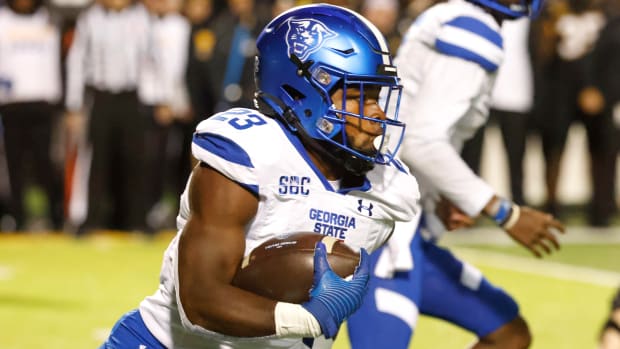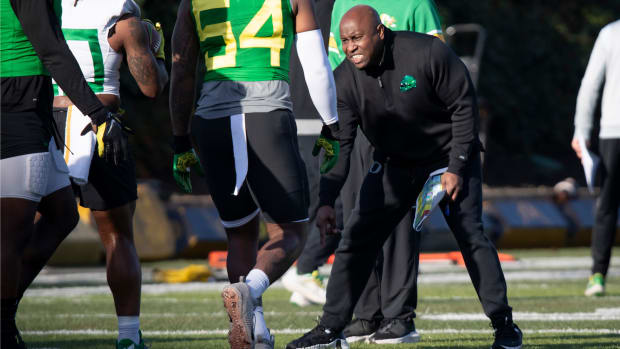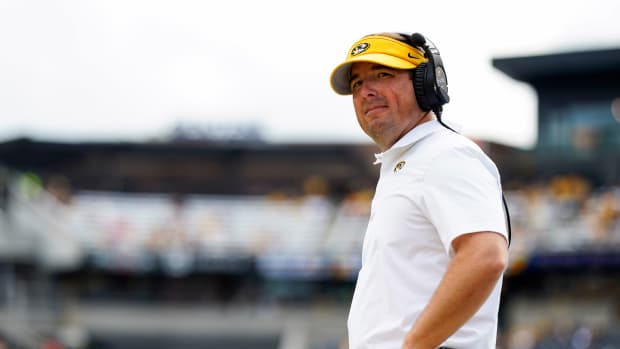Notre Dame Wasn't Ready for Ball-Hawking, Chain-Wearing Miami. Is Anyone?
They’re going to need to buy more turnover chains.
You have reached your limit of 4 premium articles
Register your email to get 1 more
One for you, and one for you, and another for you. In the first half of Saturday night’s 41–8 Miami win alone, Notre Dame threw three interceptions. The first yielded a Miami touchdown, the second a field goal. Fighting Irish coach Brian Kelly yanked starting quarterback Brandon Wimbush after that with little effect, except perhaps to eliminate even the question of whether Miami would keep scoring. Backup quarterback Ian Book tossed a pick-six on his second possession. All of them were rewarded with the golden bling that has become college football’s most beloved celebration.
That was the story of the night, although Miami by no means did all of its damage on defense. In each phase of the game, the Hurricanes were the superior team, unrelenting from the opening kickoff.
Going into the game, Notre Dame’s offense was averaging nearly 500 yards per game, ranked No. 13 among FBS teams this season. But Miami had its attack figured out, whether it was Wimbush—who returned in the third quarter—or Book under center. Running back Josh Adams, who played only a quarter last week against Wake Forest due to an unspecified ailment (which involved headaches but not the concussion protocol), was back against Miami, but he spent time in the third quarter in the medical tent and did not return. Whether it was his health or Miami’s defense—the likely explanation is both—Adams wasn’t himself, averaging just 2.5 yards per carry on 16 rushes. Going into the game, Adams had been good for an average of more than 100 yards, carrying the offense on multiple occasions throughout the Irish’s 8–1 start. Without him to anchor the unit on Saturday, Notre Dame looked lost, racking up just 261 yards and struggling to find any balance on offense.
The Hurricanes, meanwhile, were smothering on defense. That’s nothing new this season—Miami had the No. 12 scoring defense going into the night, having allowed an average of 17.6 points per game—but Saturday was another level. Besides those three interceptions, the Hurricanes also recovered a Notre Dame fumble and held the Irish to 6-of-16 on third-down conversions. Against the run, Miami was especially airtight, yielding just 3.0 yards per carry and just 108 yards on the ground.
Miami’s slate of victories before November looked uninspiring: A meeting with Florida State that was supposed to be the highlight of the first half of the season turned out to be a sloppy 24–20 win over a team that’s now fighting to become bowl eligible (and may not make it). It wasn’t until Nov. 4, when the Hurricanes hosted Virginia Tech and won decisively, 28–10, that they beat a ranked team. That win didn’t boost the Hurricanes’ ranking significantly—they went from No. 9 to No. 7—but it did confirm the growing suspicion that the weak schedule wasn’t the only reason Miami’s undefeated record had extended into November. After Saturday, it’s clear: Miami is a contender.
Second-year coach Mark Richt’s team went into halftime with the potential—however slight—to move into the No. 1 spot in next week’s rankings. The No. 1 team, Georgia, had already lost. No. 2 Alabama was losing to Mississippi State, and No. 3 Notre Dame was in the other locker room inside Hard Rock Stadium nursing the wounds of a 27–0 deficit. That possibility ended early in the third quarter when Alabama rallied to victory in Starkville, but Georgia’s first loss made the Hurricanes’ bid for a spot among the top four even stronger. Finishing out the season against Virginia at home and then at Pitt, Miami should go into the ACC title game undefeated—and there’s even a (remote) chance it could fall to ACC Atlantic champion Clemson in Charlotte and still end up with a playoff spot.
Regardless of what happens down the stretch, Miami is back—and it’s fun. Blowouts can be a bore, and Saturday’s wasn’t, which is a testament to the thumping the Hurricanes put on Notre Dame, playing the kind of football that looks like it could win a couple of early-January games.
